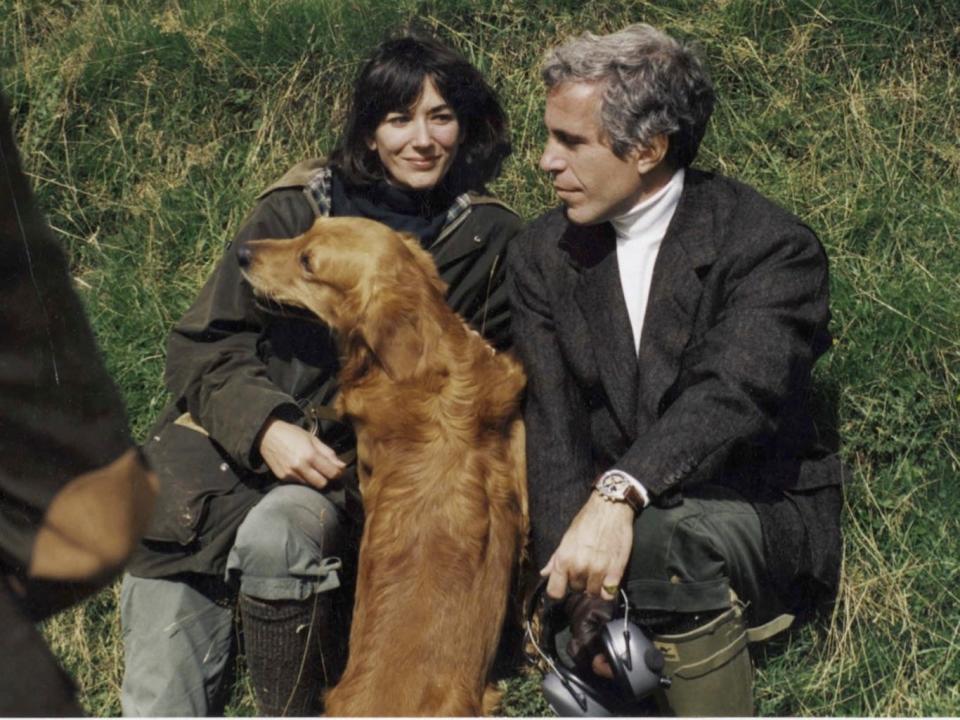
-
Jeffrey Epstein frequently withdrew tens of thousands of dollars in cash from his JPMorgan accounts.
-
At the time, there were reports that he paid cash to girls for “massages” — a code word for sex.
-
When asked about the large withdrawals, Epstein said he needed to pay for jet fuel.
Jeffrey Epstein needed an excuse.
He was withdrawing a lot of cash from his bank accounts with JPMorgan Chase.
Starting from August 2006, he withdrew tens of thousands of dollars at a time, usually multiple times per month.
He usually withdrew the money in $40,000 increments. In one November 2013 transaction, tied to an account related to his private jet, Epstein withdrew $97,152. Between September 2003 through the end of 2013, Epstein withdrew more than $5 million in cash from his JP Morgan accounts overall.
The trouble was, Epstein banked with JPMorgan’s Private Bank division, reserved for ultrawealthy clients.
JPMorgan’s private bank has a policy to “discourage” large cash deposits and spending. Bankers, according to an excerpt of the guidelines filed in court Tuesday morning, are responsible for getting clients to explain their large cash withdrawals.
“It is the primary responsibility of the Banker to obtain explanations on the source of the cash and acceptability of the intended use of the case, and to assess the plausibility of these explanations for large cash transactions,” the guidelines say.
The other problem was, Epstein was known for using cash to pay off the teenage girls he raped.
Epstein’s large cash withdrawals raised red flags
Epstein, whose estate was valued at $630 million after he died in 2019, kept tens of millions of dollars of his assets parked with JPMorgan between 1998 and 2013. A chunk of those funds was used to pay over 100 women who he sexually abused before his death.
In an ongoing lawsuit, the government of the US Virgin Islands accuses JPMorgan of being aware of Epstein’s sex-trafficking operation and did nothing to stop it, ignoring numerous red flags for years.
The US Virgin Islands government offered more insight into Epstein’s relationship with JPMorgan in a series of court filings Tuesday morning.
It filed a 45-page summary judgment motion, a 148-page “statement of fact” that was agreed upon by the government and the bank, and more than 300 exhibits — most of which were filed under seal or remain highly redacted.
The documents illustrate how JPMorgan employees joked about how Epstein surrounded himself with young women, had due diligence reports that noted criminal investigations related to his abuse of girls, and internally expressed concern about his enormous frequent cash withdrawals — but kept him as a client for years anyway.

Much of Epstein’s sex trafficking, the US Virgin Islands said, consisted of paying cash to teenage girls for “massages” — a code word for sex. Victims who testified in the trial of Ghislaine Maxwell, who was convicted in 2021 for trafficking girls to Epstein for sex, said they were paid between $200 and $300 for giving “massages” to Epstein.
Details of Epstein’s payments for massages were also reported in a 2006 Palm Beach Post article, which turned up in JPMorgan’s internal due diligence reports. The article cited an affidavit from Palm Beach County police, which described how a girl recruited six other girls to Epstein for sexualized massages, each of whom was paid $200 per session. One 14-year-old girl was given $300 after giving Epstein a massage where he told her to strip naked.
In another memo dated that year, JPMorgan employees raised their eyebrows at Epstein’s enormous cash withdrawals.
“Cash withdrawals are routinely made in amounts for $40,000 to $80,000 several times a month, which total over $750,000 year to date,” employees wrote in a 2006 memo discussing how to handle him as a client.
While these withdrawals rang alarm bells, Epstein was one of the Private Bank’s most important clients.
Partly because of his connections to other powerful and wealthy people, JPMorgan’s private banking executives used him as a recruiter.
In 2003, according to Tuesday’s motion, Epstein was “by double, the top revenue generator in the Private Bank.” He brought in clients like billionaire hedge fund manager Glenn Dubin and Google cofounder Sergey Brin, and made connections with potential clients like Bill Gates, Leon Black, Larry Summers, the Sultan of Dubai, Prince Andrew, Ehud Barak, Thomas Pritzker, and Benjamin Netanyahu, the filing says.
Epstein died in jail in 2019 while awaiting trial on sex-trafficking charges.
In a statement to Insider, a JPMorgan representative said the bank had no knowledge of his sex-trafficking operation.
“Any association with Epstein was a mistake and in hindsight we regret it, but we did not help him commit his heinous crimes,” a representative for JPMorgan Chase told Insider in a statement. “We would never have continued to do business with him if we believed he was engaged in an ongoing sex trafficking operation.”
JPMorgan finally asked Epstein about the cash in 2011
In 2007, Epstein arrived at a plea deal with prosecutors in Florida. Law enforcement identified about 40 women and girls who said he sexually abused them. Alexander Acosta, a US Attorney at the time, came to an agreement with Epstein that allowed him to plead guilty to a couple of charges related to soliciting sex work in exchange for a quick stint in jail, where he’d mostly be on work release.
JPMorgan’s employees remained uneasy about the bank’s relationship with Epstein, documents obtained by the US Virgin Islands show. But Epstein kept withdrawing enormous amounts of cash, despite the private banking division’s guidelines. He continued to take out hundreds of thousands of dollars in cash each year from his JPMorgan accounts, records show.
In a 2011 memo cited in the 148-page “statement of fact” document, JPMorgan employees wrote that a banker had another conversation with Epstein “with regard to large cash withdrawals.”
Epstein had an excuse ready. He told them he needed the money to pay for fuel when he traveled. JPMorgan made an internal note to reflect that.
“Mr. Epstein withdraws anywhere from $20K to $40K in cash to pay for fuel expenses when he travels to foreign countries,” the memo said.
The next page of the “statement of fact” document is entirely redacted.

By July 18, 2013, the continued cash withdrawals rang bells at JPMorgan’s internal anti-money laundering department, which the US Virgin Islands described as “JPMorgan’s in-house human trafficking experts.”
One compliance officer wrote in an email that Jeffrey Epstein had kept up massive cash withdrawals, simply switching from his personal account to a different account linked to his private jet.
“Issue is he really never stopped the large cash withdrawals,” a compliance officer wrote then.
The next day, John Duffy, who was then the CEO of JPMorgan’s private banking division, emailed Mary Erdoes, the CEO of the wealth management division, about cutting ties with Epstein. Erdoes had been in frequent communication with Epstein over the years, and he wanted her advice.
Duffy raised a few talking points with her about what to tell Epstein.
“1. The repetitive nature of your cash transactions is a problem for us and our relationship with you[;] 2. The regulatory standards in the banking industry continue to evolve with a very low tolerance for cash activity when combined with your personal history[;] 3. So, given the intersection of these circumstances we are in a uniquely challenged situation,” Duffy wrote. “Remediation is required and we need to ask you – in an orderly manner – to find another bank for your needs.”
“I think that is fine,” Erdoes responded, about the proposed language of the bank’s anticipated break-up with their billionaire client.
JPMorgan officially dropped Epstein as a client later that year.
Last month, the bank agreed to pay $290 million to settle a class-action lawsuit brought by Epstein’s victims over his sexual abuse.
Read the original article on Business Insider


